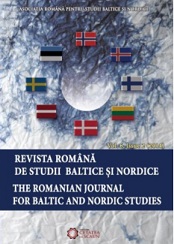Danish Straits versus Turkish Straits: The Potential Impact of Prospective Russian Oil Exports
Danish Straits versus Turkish Straits: The Potential Impact of Prospective Russian Oil Exports
Author(s): Mehmet Efe Biresselioglu, Muhittin Hakan Demir, Sinem DönmezSubject(s): Supranational / Global Economy, Energy and Environmental Studies, Economic policy, International relations/trade
Published by: Asociatia Romana pentru Studii Baltice si Nordice
Keywords: Energy security; chokepoints; Turkish Straits; Danish Straits; Russia; Arctic Region Oil;
Summary/Abstract: The Danish Straits, which connect Baltic Sea to North Sea as an oil transit choke point, are becoming vastly important as a gateway to Europe for Russian oil exports. In terms of the future source of Russian oil, the country is estimated to hold half of the total Arctic resources. This indicates the forthcoming increase in the importance of Danish Straits in the global energy security. Besides, two additional alternative and important choke points are located in Turkey, which are the Straits of Bosporus and Dardanelles, known as Turkish Straits. These straits are also one of the significant exit points of Russian oil exports but as Russia shifted its direction of oil exports toward Baltic ports, the strategic position of Turkish Straits have been affected from this transition as well. It is an open question whether the Turkish Straits will continue to be the outlet of Russian oil exports or the Danish Straits will take over that position in line with the oil resources development in the Arctic Region. This study aims to analyse the Turkish and Danish Straits and establish their significance in terms of energy security. The current and future oil export strategies of Russia on the existing chokepoints are also discussed, with special emphasis on the potential impacts of Arctic development as Russia continues with the exploration and extraction of Arctic oil resources.
Journal: Revista Română de Studii Baltice şi Nordice
- Issue Year: 6/2014
- Issue No: 2
- Page Range: 223-239
- Page Count: 17
- Language: English

